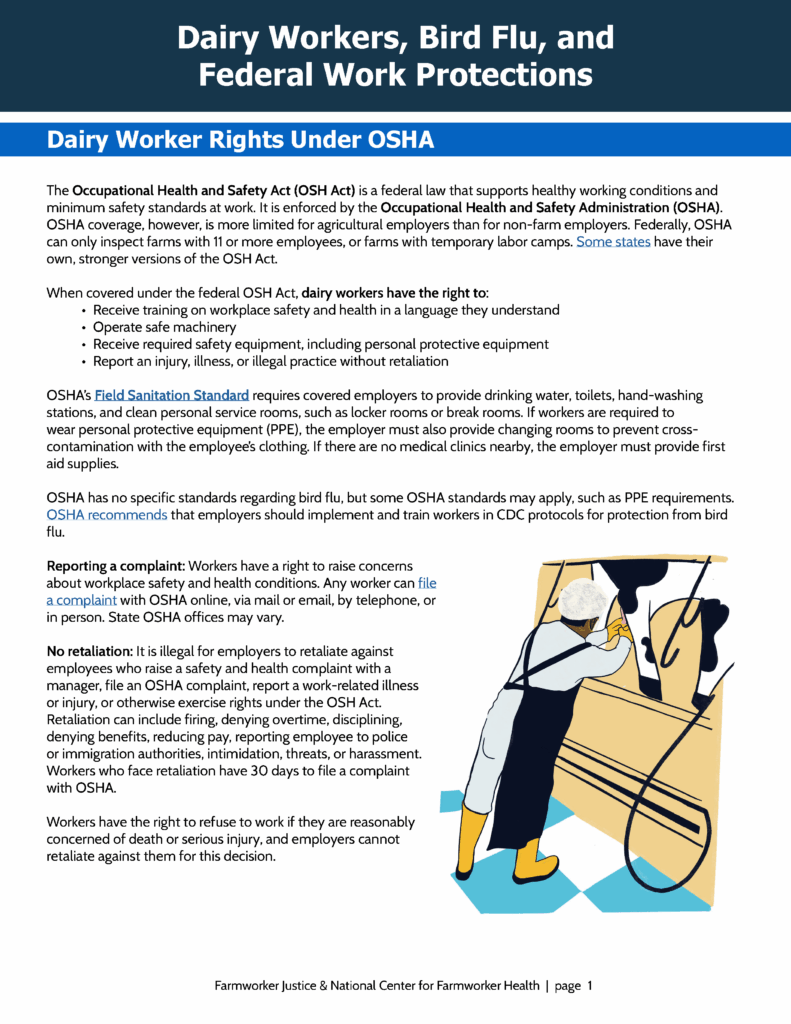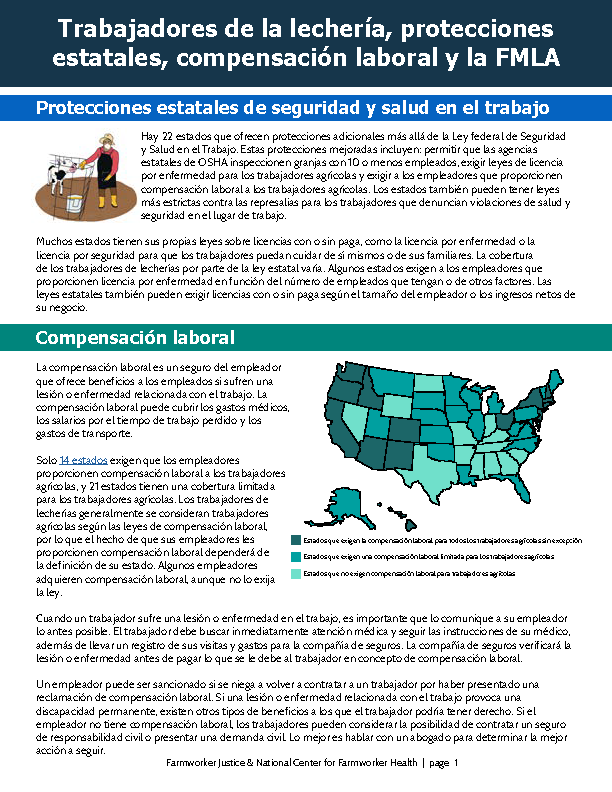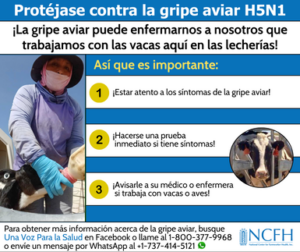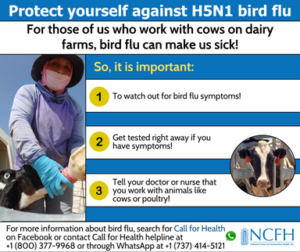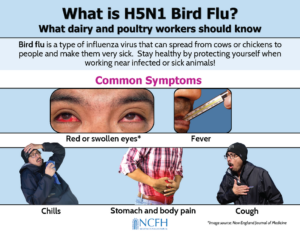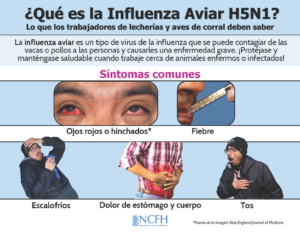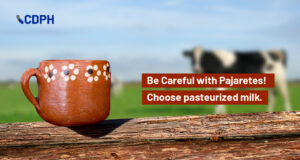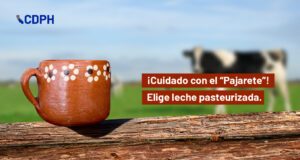Dairy Workers, Bird Flu, and Federal Work Protections
This fact sheet provides an overview of federal regulations and recommendations to protect dairy workers from H5N1 (bird flu). It was created by Farmworker Justice in collaboration with the National Center for Farmworker Health. Available in English and Spanish.
Dairy Workers, State Protections, Worker’s Compensation, and the FMLA
This fact sheet provides an overview of state-level protections to support the health and safety of dairy workers. It was created by Farmworker Justice in collaboration with the National Center for Farmworker Health. Available in English and Spanish.
Stay Healthy While Working with Animals
Did you know that animals and people can get sick from many of the same types of germs? This flyer describes key zoonotic pathogens, how they spread, the diseases they can cause, and steps workers can take to protect their health. Available in English and Spanish.
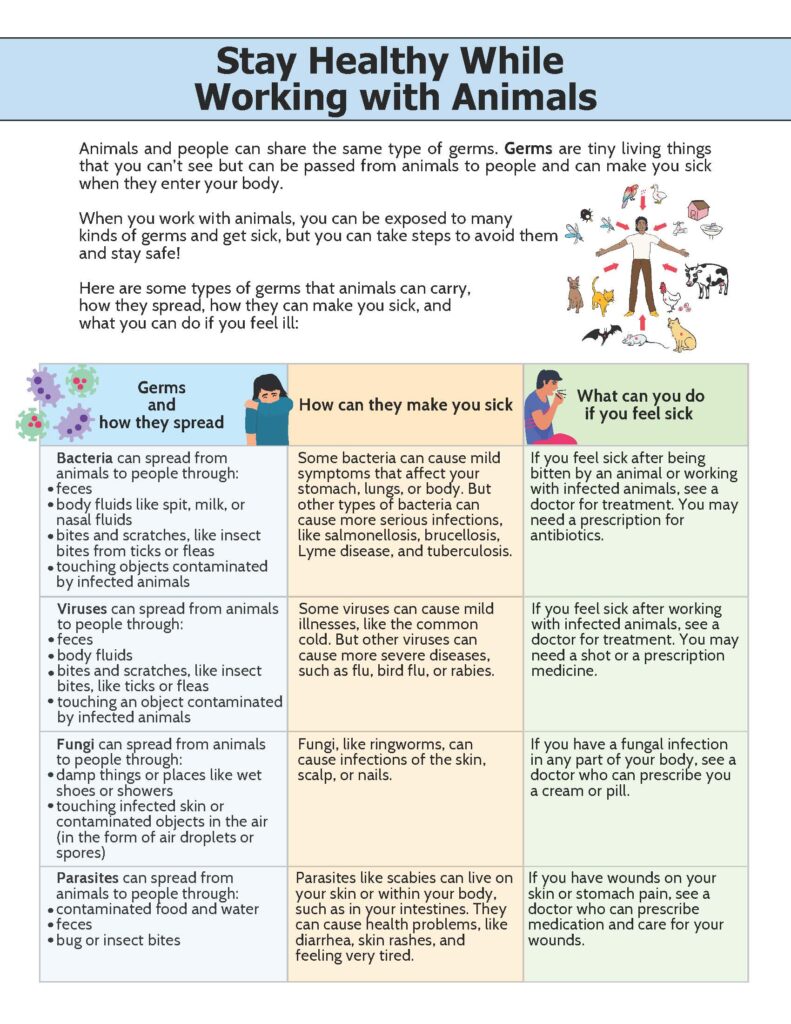
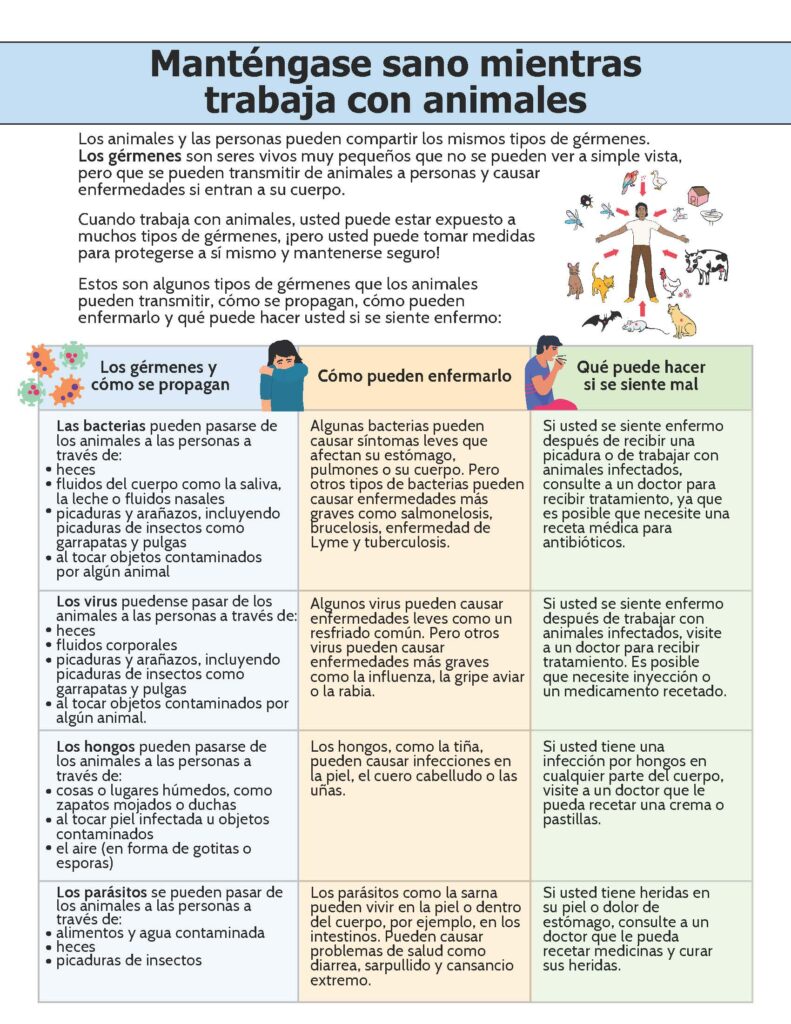
H5N1 Bird Flu Educational Resources for Dairy Workers!
NCFH has developed resources on Avian influenza H5N1, also known as the Bird Flu, for health centers and organizations that serve dairy workers. The resources offer information to educate and equip dairy workers about prevention and risks of bird flu while at work, how to identify symptoms, and how to access testing. These resources are available in the following languages: English, Spanish, Mam, K’iche’, Q’anjob’al, Mixteco (San Antonio Yodunduza Monte Verde variety), Nahuatl (Orizaba variety), and Afrikaans.
Download and share with dairy workers during outreach, educational activities, social media, or in your clinic while they wait for an appointment!

Educational Flyer: Protect Yourself from Bird Flu when Working with Sick Dairy Cows, available in:
- English
- Spanish
- Náhuatl Orizaba variety (audio)
- Zapoteco San Agustin Loxicha variety (audio)
- Purépecha Paracho de Michoacán (audio)
- Mixteco Metlatonoc Guerrero (audio)
- Q’anjob’al Santa Eulalia variety (audio)
Educational PSA: Available in
- English
- Spanish
- Náhuatl Orizaba variety
- Zapoteco San Agustín Loxicha variety
- Purépecha Paracho, Michoacán
- Mixteco Metlatonoc Guerrero
- Q’anjob’al Santa Eulalia variety
The following resources offer information to educate and equip dairy workers about prevention and risks of bird flu while at work, how to identify symptoms, and how to access testing. These flyers and audio are available in the following languages: English, Spanish, Mam, K’iche’, Q’anjob’al, Mixteco (San Antonio Yodunduza Monte Verde variety), Nahuatl (Orizaba variety), and Afrikaans.
Download and share with dairy workers during outreach, educational activities, social media, or in your clinic while they wait for an appointment!
Educational Flyer: Dairy Workers Are at Risk for H5N1 Bird Flu, available in
- English
- Spanish
- Náhuatl (Orizaba variety) (audio)
- Mam (audio)
- K’iche’ (audio)
- Mixteco (San Antonio Yodunduza Monte Verde variety) (audio)
- Afrikáans (audio)
- Q’anjob’al (audio)
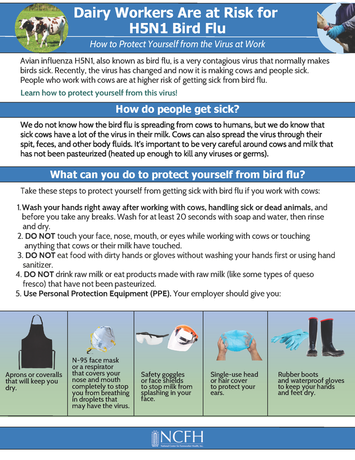
Educational PSA: Available in
- English (long and short version)
- Spanish (long and short version)
- Mam (long and short version)
- K’iche’ (long and short version)
- Q’anjob’al (long and short version)
- Nahuatl (Orizaba variety) (long and short version)
- Mixteco (San Antonio Yodunduza Monte Verde variety) (long and short version)
- Afrikaans (long and short version)
